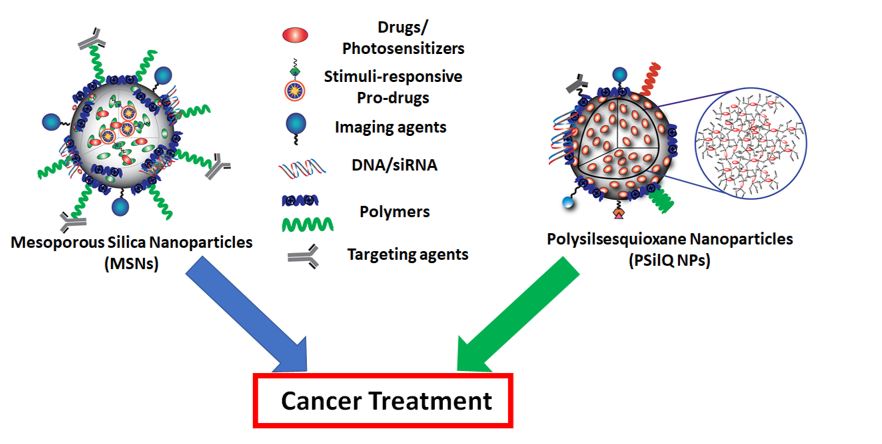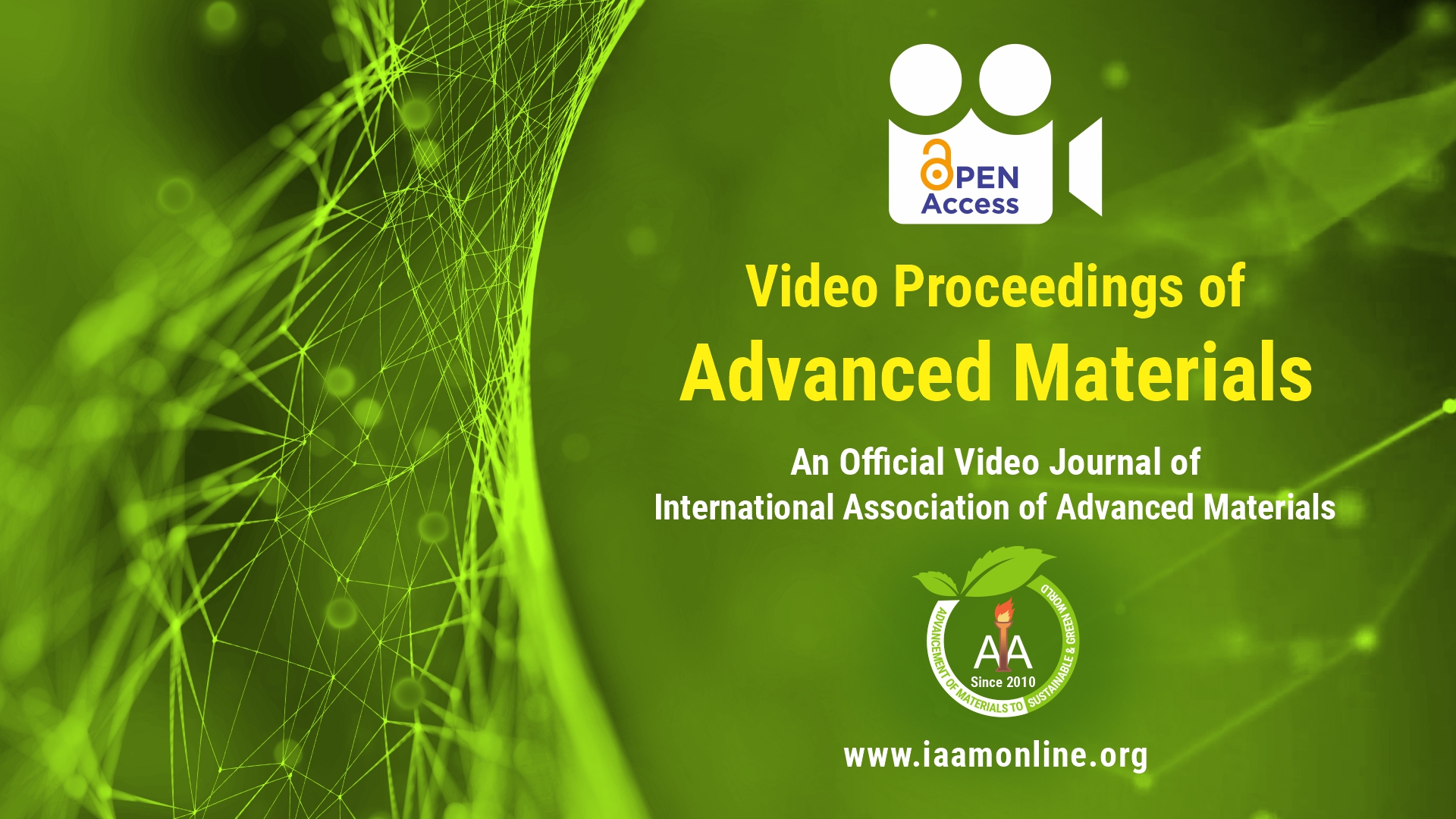Video Article Open Access
Recent Advances on Multifunctional Hybrid Silica-Based Nanoparticles for Cancer Treatment
Juan L. Vivero-Escoto1,2,3,*, Mubin Tarannum1,3, Ridhima Juneja1, Hemapriyadarshini Vadarevu1,3, Zachary Lyles1,3
1Department of Chemistry, University of North Carolina Charlotte, Charlotte, 28223, USA
2The Center for Biomedical Engineering and Science, University of North Carolina Charlotte, Charlotte, 28223, USA
3Nanoscale Science Program, University of North Carolina Charlotte, Charlotte, 28223, USA
Vid. Proc. Adv. Mater., Volume 2, Article ID 2108225 (2021)
DOI: 10.5185/vpoam.2021.08225
Publication Date (Web): 22 Jul 2022
Copyright © IAAM
Graphical Abstract

Abstract
Nanoparticles are an innovative platform for cancer treatment that reduces systemic toxicity and allows for active targeting of tumor sites to enhance the therapeutic efficacy. Hybrid silica-based nanoparticles (HSNs) have emerged as an attractive drug delivery system due to their vast functionalization potential, biocompatibility, and high surface area. The surface of HSNs can be modified with targeting agents that allow not only the specific interaction with cancer cells, but also be used to carry nucleic acids. In addition, active molecules such as photosensitizers and/or anticancer drugs can be chemically attached or physically loaded into the interior and/or exterior surface of HSNs. My group has focused its efforts in two HSN platforms, polysilsesquioxane (PSilQ) and mesoporous silica nanoparticles (MSNs). Herein, I will present our recent results aimed to demonstrate the versatility of HSNs to develop target-specific multifunctional delivery systems for the treatment of cancer. We have developed a target-specific MSN-based delivery system for the effective treatment of pancreatic cancer using combined therapy that includes gemcitabine and cisplatin. Moreover, we have used the same MSN platform to treat triple-negative breast cancer (TNBC) combining chemo and gene therapy. In a similar way, we have fabricated PSilQ nanoparticles for the improved treatment of TNBC using photodynamic therapy as the main therapeutic approach, but also with the combination of chemo and gene therapies. In particular, we have tested doxorubicin and curcumin as chemotherapeutic agents, and siRNA targeting apoptosis regulator gene BCL2. The efficacy of both systems was evaluated in in vitro and in vivo experiments for the respective type of cancers. Overall, our results demonstrate that both MSN and PSilQ nanoparticle-based platforms can improved the treatment of pancreatic or triple-negative breast cancer. Therefore, we are convinced that MSN and PSilQ nanoparticles may become a new promising approach to efficiently treat cancer and other diseases via the simultaneous targeting of various pathways.
Keywords
Hybrid nanoparticles; mesoporous silica nanoparticles; polysilsesquioxane nanoparticles; cancer treatment; multifunctional nanoparticles.
Acknowledgement
National Science Foundation (EAGER-NSF #1835688), SPRINT UNCC-FAPESP award, Faculty Research Grant award (FRG/UNC Charlotte), National Institute of Cancer under Award Number R15CA192160.
References
- R. Juneja, Z. Lyles, H. Vadarevu, K. Afonin, J. Vivero-Escoto, ACS Materials & Interfaces, 2019, 11(13), 12308.
- Z. Lyles, M. Tarannum, C. Mena, N. Inada, V. Bagnato, J. Vivero-Escoto, Advanced Therapeutics, 2020, 3(7), 202000022.
- R. Juneja, H. Vadarevu, J. Halman, M. Tarannum, L. Rackley, J. Dobbs, J. Marquez, M. Chandler, K. Afonin, J. Vivero-Escoto, ACS Materials & Interfaces, 2020, 12(35), 38873.
Biography
Juan L. Vivero-Escoto started his independent career in 2012 and he is currently an Associate Professor of the Chemistry Department at the University of North Carolina Charlotte (2018-present). He received his B.S. and M.S. in Chemical Engineering from the National Polytechnic Institute of Mexico (2004) and a Ph.D. in Chemistry from Iowa State University (2009). He was a postdoctoral fellow through the Carolina Postdoctoral program for Faculty Diversity at UNC Chapel Hill from 2010-2012. Dr. Vivero-Escoto has numerous professional honors including the Ralph E. Powe Junior Faculty Enhancement Award from Oak Ridge Associate Universities (ORAU) (2013), the Wells Fargo Faculty Excellence Award (2013), the CLAS Junior Faculty Development award UNCC (2015), Outstanding Faculty Award UNCC (2016), NSF Catalyst fellow (2017) and NSF AGEP-NC fellow (2019). His research focuses on the development of hybrid silica-based nanoparticles for biomedical applications. Dr. Vivero-Escoto has published over 50 peer-reviewed research papers, reviews, book chapters and editorials.
Video Proceedings of Advanced Materials

Upcoming Congress



